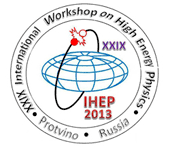Speaker
Stephen CROTHERS
(AIAS, USA)
Description
All alleged black hole solutions pertain to a universe that is spatially infinite, is eternal, contains only one mass, is not expanding, and is asymptotically flat. But the alleged big bang cosmology pertains to a universe that is spatially finite, is of finite age, contains radiation and many masses including multiple black holes (some of which are primordial), is expanding, and is not asymptotically flat. Thus the black hole and the big bang contradict one another – they are mutually exclusive. The black hole is almost universally claimed to be predicted by General Relativity. It is surprisingly easy to prove that this is not true. Similarly it is very often claimed that Newton’s theory of gravitation also predicts the black hole, but this too is very easily proven to be erroneous. Despite numerous claims for discovery of black holes in their millions, nobody has ever actually found one. In addition it is not very difficult to prove that General Relativity violates the usual conservation of energy and momentum, with only a little use of mathematics. The simple proofs also demonstrate that all ‘singularity theorems’ related to General Relativity are invalid. Fundamentally there are contradictions contained in the very physical principles of General Relativity, combined with invalid mathematics, which render the theory untenable. It is the object of this paper to provide the proofs without the complicated mathematics usually associated with the subject.




